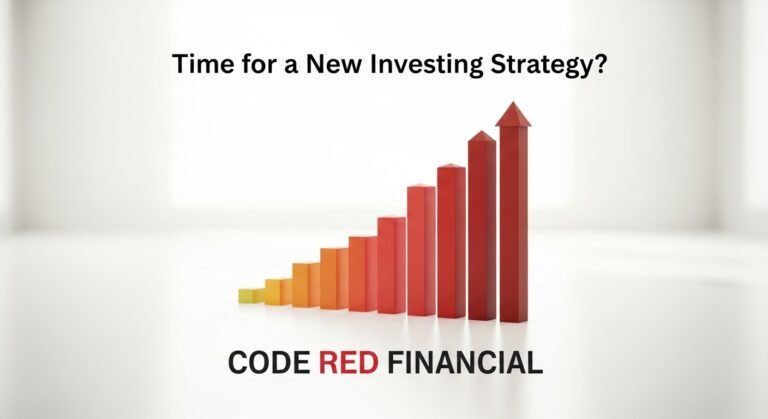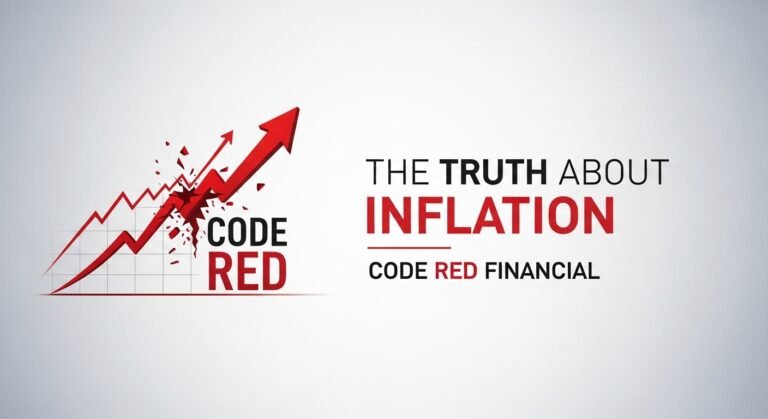
Photo by <a href="https://unsplash.com/@amstram" rel="nofollow">Scott Graham</a> on <a href="https://unsplash.com/?utm_source=hostinger&utm_medium=referral" rel="nofollow">Unsplash</a>
Introduction
Navigating Economic Uncertainty: Turning Challenges into Strategic Opportunities
Economic uncertainty is a constant presence in today’s global financial landscape, and it often feels like an approaching storm over calm waters. The inherent volatility and unpredictability in markets can disrupt lives, introduce risks, and test resilience. However, these financial challenges also provide an invaluable opportunity: to reassess strategies, reinforce financial foundations, and strategically capitalize on shifts within the economic environment.
During times of financial instability, individuals and businesses face a pivotal decision: either succumb to the pressure of the storm or implement proactive and adaptive measures to emerge stronger. With the right approach, adversity can serve as a catalyst for growth, innovation, and long-term financial success.
The Importance of Financial Literacy in Times of Economic Uncertainty
Financial literacy is a cornerstone of navigating economic volatility. Just as seasoned sailors prepare their vessels for rough seas, individuals and organizations must equip themselves with a strong financial foundation to withstand unpredictable market conditions. Financial knowledge serves as the compass that guides decisions, ensuring that individuals and businesses remain resilient in the face of economic disruptions.
Understanding Market Dynamics
A comprehensive understanding of economic indicators, investment trends, and market cycles is essential for anyone looking to successfully navigate financial uncertainty. Being well-versed in these elements enables individuals to make informed, timely decisions that align with changing economic conditions. Proactive measures, such as adjusting investment strategies, rebalancing portfolios, or diversifying risk exposure, can mitigate potential losses and position you to capitalize on emerging opportunities.
For example, understanding how interest rates, inflation, or geopolitical events affect market behavior can provide critical insights into adjusting your financial strategies. Staying on top of these market shifts equips you with the knowledge to react before changes are fully realized, giving you an edge in times of volatility.
Diversifying Investments
Diversification is one of the most fundamental principles of risk management. By spreading investments across different asset classes—such as stocks, bonds, real estate, and alternative investments—you reduce exposure to market risk. A diversified portfolio is far less vulnerable to market fluctuations and offers greater stability, especially during economic turbulence.
In times of volatility, the risk of focusing too heavily on one sector or asset class is magnified. For instance, an over-reliance on stocks or bonds could lead to significant losses if those markets experience a downturn. By diversifying, you cushion your financial portfolio from extreme fluctuations and ensure that your wealth continues to grow, regardless of market conditions.
Prioritizing Continuous Financial Education
The financial world is constantly evolving. With innovations in fintech, investment strategies, and the growth of digital assets like cryptocurrency, staying informed is more important than ever. Continuous learning and engagement with financial resources such as expert opinions, online courses, webinars, and industry reports empower individuals to stay up-to-date with the latest trends and best practices.
In an era where financial products and services are rapidly changing, individuals must proactively engage with educational content to enhance their financial acumen. This allows you to remain flexible and make informed decisions in line with the changing financial landscape, increasing your overall financial literacy and enhancing your ability to thrive during economic uncertainty.
Strengthening Your Career: A Pillar of Financial Security
In times of economic uncertainty, your career plays a significant role in supporting long-term financial stability. Treating your career as a valuable asset that requires continuous investment and development is a key strategy for maintaining economic security.
Developing High-Demand Skills
As industries evolve, so too must the skill sets required to remain competitive. As economic conditions fluctuate, certain skills become more valuable, and the demand for professionals with specialized expertise can rise. By acquiring high-demand skills, you increase your employability and income potential.
Consider pursuing certifications, training programs, or advanced degrees in areas with growing demand. Technology, digital marketing, data analysis, and renewable energy are just a few sectors where skill development is highly valued. With the right skills, you not only become a more attractive candidate for potential employers but also increase your adaptability to new opportunities, regardless of market changes.
Building a Strong Professional Network
Networking is often the key to unlocking new career opportunities, especially during times of economic uncertainty. Building and nurturing relationships within your industry can provide access to valuable job leads, collaborations, and insights that may not be available otherwise. Strategic networking—attending industry events, joining professional organizations, or participating in online communities—ensures that you stay visible and engaged within your professional network.
During uncertain times, having a strong network can serve as a support system, offering guidance and potential opportunities. Engaging with mentors, peers, and industry leaders provides a solid foundation from which you can leverage opportunities or navigate the challenges of a shifting job market.
Positioning Yourself as a Leader
In any industry, leadership is a trait that sets individuals apart. During periods of economic instability, those who can lead teams, manage change effectively, and solve complex problems are often more likely to thrive. Positioning yourself as a leader—by demonstrating agility, problem-solving skills, and strategic thinking—helps you stand out to employers and clients alike.
Leadership isn’t just about managerial roles. It can also be exhibited through the way you approach challenges, support colleagues, or provide innovative solutions to problems. Developing a reputation as a resourceful and forward-thinking professional increases your job security and positions you for career advancement, even in uncertain times.
Financial Resilience: Building a Comprehensive Financial Strategy
Financial resilience involves creating a robust, well-rounded strategy to safeguard your financial well-being against economic shocks. This strategy should address key components, including budgeting, emergency savings, and long-term investing. Establishing a strong financial framework is essential to weather economic turbulence effectively.
Implementing Effective Budgeting Practices
One of the first steps in developing financial resilience is establishing a clear, dynamic budget. A budget allows you to track income, manage expenses, and allocate resources in a way that aligns with both short- and long-term financial goals. During times of economic uncertainty, a flexible budget is crucial to adjusting to shifting priorities.
Effective budgeting can ensure that essential expenses—such as housing, food, and utilities—are covered while also setting aside funds for savings and investments. By reviewing your budget regularly and making adjustments as circumstances change, you can continue to make progress toward your financial goals without being derailed by unexpected events.
Building an Emergency Fund
An emergency fund serves as a safety net, ensuring that you have access to liquid cash in case of unexpected events such as job loss, medical emergencies, or other unforeseen financial obligations. Maintaining an emergency fund that covers three to six months’ worth of living expenses provides a financial buffer, giving you peace of mind in times of economic downturns.
During uncertain times, individuals who have an emergency fund are less likely to succumb to financial stress or take on high-interest debt. By building and maintaining this reserve, you increase your ability to navigate challenging financial periods with confidence.
Investing for Long-Term Growth
Investing is an essential strategy for building long-term wealth. Having a solid understanding of investment vehicles—such as stocks, bonds, mutual funds, real estate, and more—allows individuals to select the most appropriate options based on their financial goals, risk tolerance, and time horizon.
A diversified investment strategy helps mitigate risks while maximizing opportunities for growth. During economic uncertainty, it is important to stay vigilant and adjust your portfolio to reflect changing market conditions. A well-balanced mix of assets—comprising both traditional investments and alternative assets—ensures that you are not overly exposed to market volatility.
Embracing Innovation and Adaptability in the Face of Uncertainty
Innovation and adaptability are essential traits for individuals and businesses navigating periods of economic uncertainty. Rather than viewing challenges as obstacles, those with a growth mindset embrace them as opportunities to explore new strategies, business models, and revenue streams.
Diversifying Income Streams
Relying on a single source of income is increasingly risky, particularly during periods of financial instability. Diversifying your income streams not only provides additional financial security but also allows you to explore innovative ways of generating revenue. Whether it’s freelancing, consulting, or launching a side business, having multiple income sources can reduce your dependency on a single job or business venture.
In addition to creating additional revenue, diversifying your income can foster creative thinking and open up new opportunities. Many successful entrepreneurs have diversified their income by building online businesses or investing in real estate. These efforts can serve as an innovative approach to achieving financial stability and long-term success.
Adopting a Growth-Oriented Mindset
A growth-oriented mindset is crucial when faced with adversity. Those who view setbacks as learning opportunities are better equipped to adapt to changes in their environment. Instead of dwelling on challenges, focus on solutions and opportunities for improvement. With a focus on growth, individuals can pivot their strategies and adjust their actions, ensuring that they remain on course to meet their long-term goals.
Adopting this mindset is particularly important when facing financial uncertainty. It enables you to respond proactively rather than reactively to economic changes, which is critical for maintaining financial stability during times of volatility.
Staying Strategic
The ability to think strategically is essential when navigating unpredictable economic conditions. Whether you’re evaluating investment options, exploring new business ventures, or seeking career advancement opportunities, adaptability is key. Strategic thinking allows you to consider the long-term implications of your decisions, helping you pivot and adjust your approach as necessary.
A strategic mindset ensures that you’re prepared for any shifts in the market and allows you to take advantage of new opportunities when they arise. Being able to adjust quickly is an essential part of thriving in an uncertain economic environment.
Turning Economic Uncertainty into Long-Term Success
Economic uncertainty is inevitable, but it can also be an opportunity to reassess and strengthen your financial strategy. By focusing on financial literacy, career development, and adaptability, individuals and organizations can successfully navigate volatility and even thrive in times of adversity.
Rather than fearing the storm, view it as an opportunity to enhance your financial resilience, sharpen your strategies, and position yourself for long-term growth. With the right mindset, planning, and actions, you can transform economic challenges into stepping stones for future success. Long-term success isn’t about avoiding challenges; it’s about facing them head-on with the agility and determination needed to succeed.
Updated Article (February 28, 2025)






